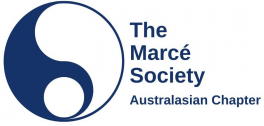Prepartum And Postpartum Depression Among Chinese Women: Prevalence And Risk Factors
Hui-chen Ko, PH.D. (1); Tzung-lieh Yeh, MD (2); Ling-ru Lee, PH.D.; Chiung-hsin Chang, MD (3); Rong-chang Wu, MD (3); Fong-ming Chang, MD
(1) Graduate Institute of Behavior Medicine
(2) Department of Psychiatry
(3) Department of Obsterics and Gynecology
Medical College, National Cheng Kung University
The study was undertaken to investigate the prevalence and risk factors for the prepartum and postpartum depression in a larger sample of 599 Chinese women followed up 36 week's gestation until 4 months postpartum. Subjects were recruited at a prenatal visit at 36 week's gestation. They were interviewed using SADS-L, SADS, Family History RDC and Life Events Schedule. They completed the self-report measures at home and returned it by mail before delivery. Blood were obtained for hormone assays at 36 week's gestation and on day 1 and 3 postpartum. At 10 days, 8 weeks, and 4 months postpartum, subjects participated in a followed-up diagnostic interview by telephone. A total of 52 women (8.7%; 52/599) experienced a major or minor depression during pregnancy, 107 women (19.1%; 107/599) experienced postpartum blue defined by Handley Criteria within 10 days after delivery, 77 women (14.5%; 77/599) experienced minor or major depression, 1 woman had a manic episode and 2 women had hypomanic episodes during 8 weeks postpartum. We compared prepartum depressed, postpartum depressed, and non-depressed women on risk factors associated with depression. With respect to demographic and clinical variables, there were no differences on age, education, parity, delivery method, gender of babies and unexpected gender of babies. However, either of the depressed groups had a greater likelihood of having family history of depression, and premenstrual depression. Regarding the estradiol levels at 36 weeks of gestation, there was a significant difference between postpartum depressed women and controls. As to psychological vulnerability, postpartum depressed women reported they were more behavior-inhibition during childhood and had stronger negative cognition and attitude. Considering environmental factors, postpartum depressed women perceived their parents less caring and more controlling compared to controls. The prepartum depressed women experienced more negative life events during pregnancy, but the postpartum depressed experienced more childcare-related stress during the postpartum periods relative to controls. There were no differences among three subject groups with respect to the numbers of prepartum events. Regarding social support index, the prepartum depressed received less support from friends, parents, parents-in-law and spouses. However, there were no differences on the practice of traditional culture ritual of "doing the month" among three groups. The findings from this study support that there is similar prevalence and risk factors for postpartum depression among Chinese women in Taiwan with those in western cultures.





